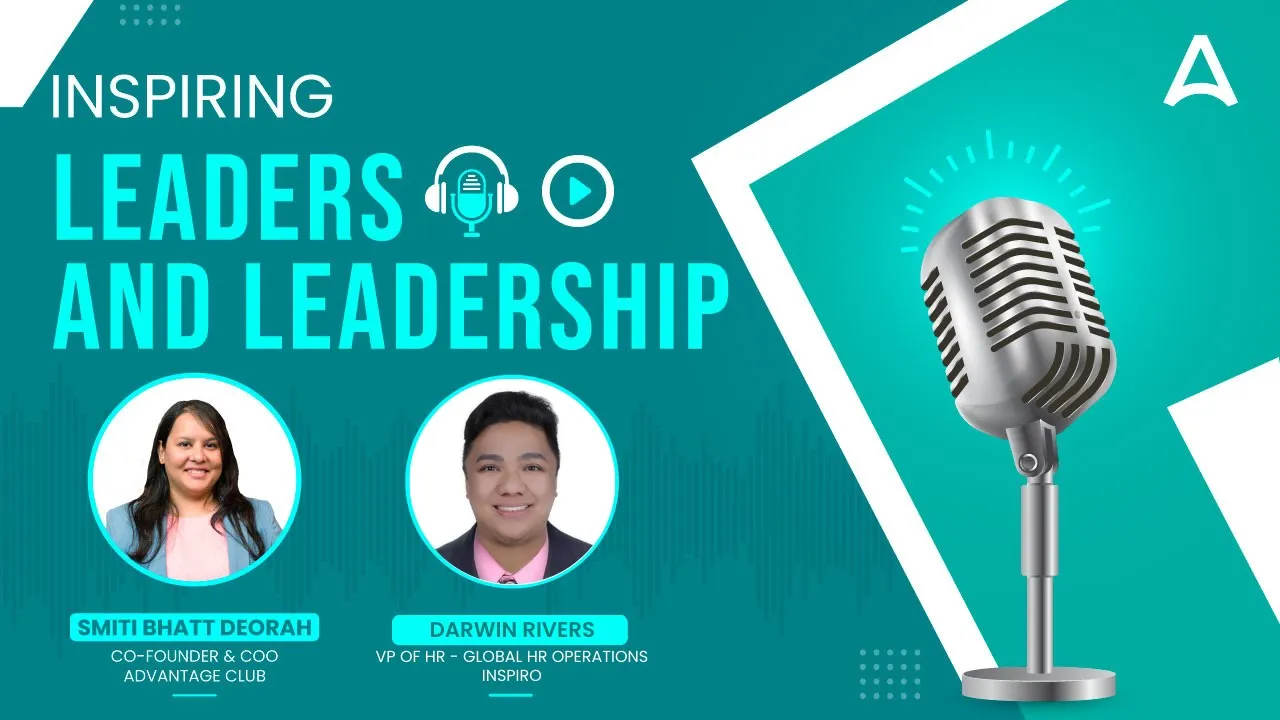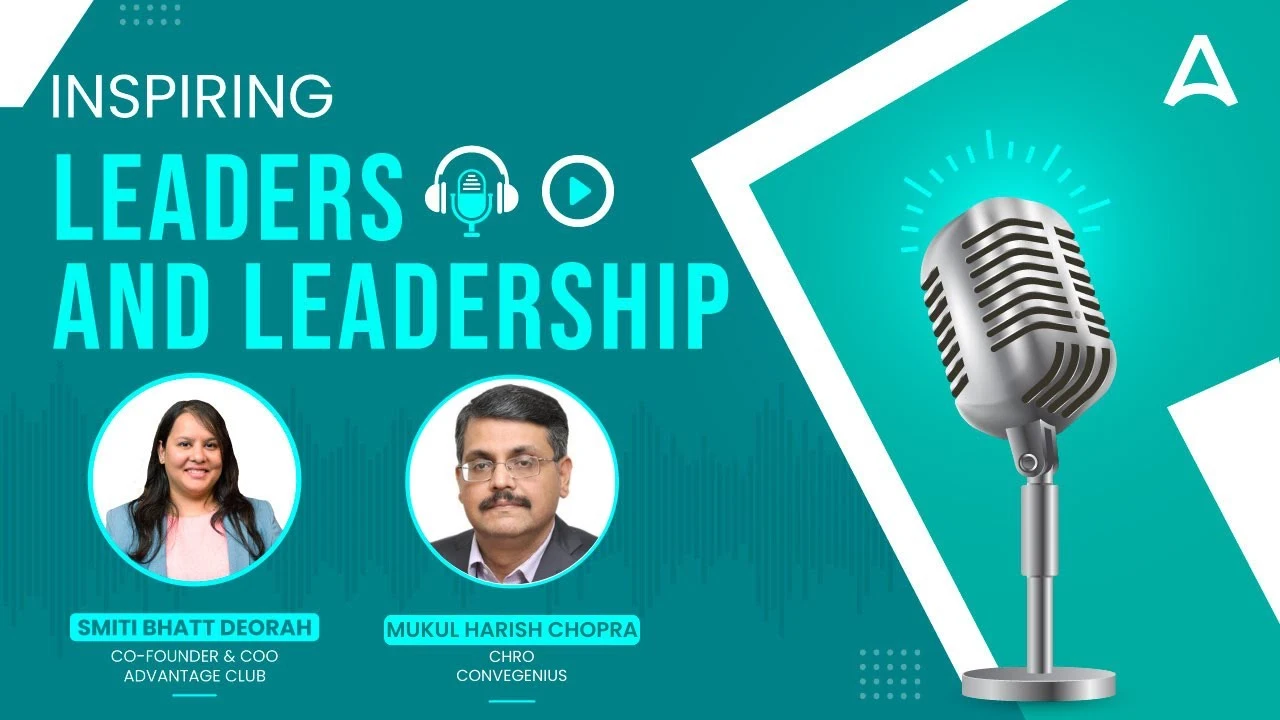Elpha Office Hours: Explore HR-Tech, Business Growth, and Entrepreneurial Insights with Smiti Bhatt Deorah

Team AdvantageClub.ai
February 6, 2026

Welcome to our latest blog post featuring Smiti Bhatt Deorah, Co-founder, and COO of AdvantageClub.ai, a YC-backed global employee engagement and rewards platform. Recently, Smiti hosted an engaging Ask Me Anything (AMA) session on Elpha, where she graciously shared her insights and expertise on various topics ranging from HR-Tech to entrepreneurship. In this blog post, we’ll recap some of the highlights from Smiti’s AMA and delve into her valuable responses.
About Smiti
Smiti Bhatt Deorah is the Co-Founder and COO of AdvantageClub.ai, a Global Employee Engagement Platform. Currently, she oversees various functions, including business development, marketing, customer relations, and content operations. An alumna of the University of California (UCLA) with a Master’s degree in Computer Science, Smiti has a strong experience in B2B networking/relationships. Before co-founding AdvantageClub.ai with Sourabh Deorah, she was part of the first 10 people in the customer engagement and sales team for SQL Azure at Microsoft Redmond.
About Elpha
Elpha is a free online community for women in tech with 100,000+ members supporting professional women in their careers. Thousands of women have found jobs in tech, negotiated raises, received advice on complicated work situations, and found a supportive community on Elpha.
Through features like Office Hours, members can interact directly with industry experts to gain valuable insights and advice on various topics. Elpha is committed to fostering diversity, equity, and inclusion in the tech industry and empowering women to succeed in and stay in tech.
Note: The responses and insights shared in this blog post are based on Smiti Bhatt Deorah’s AMA session on Elpha. All credits to Smiti for her valuable contributions.
Highlights from the AMA Session
Question 1
My work is fully remote, and I’m always trying to find ways to keep people on the team engaged. What strategies do you recommend?
It is amazing that you are already thinking of leveling up on your engagement metrics, which is literally the first step to accepting that no level of engagement is ever enough, we need to do more and more every day.
- Peer appreciation: Today's generation wants to be appreciated for everything they do. They ideally want to be thanked or applauded for their efforts because getting a paycheck if just not enough. Creating structures around that, like thank you/kudos weeks, will go a long way in engaging employees, especially students.
- Communities: You can engage students better when they have access to one another and they actually feel like a team. Being fully remote, they must have never met their peers face to face for more than once or twice a year, which removes the connectivity between them. Zoom is great, but it doesn't have the same impact. So creating groups of like-minded individuals, things like hobby clubs, support groups, ERGs, DEI groups would bring them closer and increase their belongingness.
- Connections: Find ways in which people in the same vicinity can connect with each other. For example, we have a classifieds feature, where I can literally find roommates or rent apartments from other employees in my company. People you work with are more trustworthy than random folks on Craigslist etc, so leveraging the power of your community really helps.
- Fun digital events: These are digital, so can be done more often and are easier to organize than physical events like retreats. For example, an online team lunch on Zoom, a fun gaming session on a digital platform with leaderboards, etc, or running a virtual stepathon or walking challenge, or even simple quizzes rolled out to employees will engage them better without the logistical nightmares.
- Moments that matter: Celebrating milestones like work anniversaries, birthdays, completion of 3/5/10 years, and more add a lot of value in engagement and retention. If a monetary gift can be attached that would be best, or a simple e-card, personalized email, or certificate goes a long way 🙂
Question 2
I’m interested in understanding the process of going through Y Combinator. Could you describe what the application, interviews, and the program itself were like?
My YC experience was a little different than most because we were a little late to go to YC (we were the oldest and had the highest revenue in our batch). But the process remained pretty straightforward. We applied for summer 21, and this was a remote batch because of Covid. The application also requires you to submit a 1min video along with the written application. The written piece is fairly a standard set of questions for every batch, asking you to talk about your past work, education, and some interesting questions around how good of a hustler you are. This was not our first time applying; we had been rejected in the past, so it is true that you can keep re-applying to YC with your progress, and you could still get through later. The interviews are short, 10-15 minutes where they ask you a rapid fire of quick questions where you should give short, to the point, but concise answers. Ours were mostly around the need for the product, our reason for pivoting from our original perks idea we had interviewed with last time (they had notes from our previous interview in the Bay area where we had gotten rejected), what were we doing differently this time, questions around our revenue and why we were applying to YC now since we were a little late stage. They actually changed the protocol and one of the partners did a SECOND interview with us a week later, over a phone call, to answer some follow-up questions. A day later, we got the acceptance.
Question 3
In your experience, in a slow economy where companies are laying off, what are the challenges companies face with their existing workforce?
You are absolutely correct – attracting talent is not hard in this economy – which also creates the reverse problem that retaining good talent is hard. In a world where companies are struggling to stay stable, most increments and bonuses are being canceled, which is forcing good talent to look out elsewhere and companies can no longer afford high pay increases to retain them. Eventually, there is a requirement for great talent everywhere; they are definitely not the ones getting laid off in most cases. So retention is the first problem. Second is, that after you have laid off 20% of your workforce, the remaining 80% becomes insecure. So re-engaging the folks you decided to keep becomes a big challenge to rebuild the trust with those employees again and give them security. Hence, driving effective communication to build authenticity becomes important. Third is bridging the skills gap due to layoffs and driving the same amount of productivity with a smaller workforce.
Question 4
As an HR head, do you use ML to make decisions or draw strategies for workforce hiring, management, etc.?
Yes absolutely. The first benefit of using AI/ML in hiring is to shortlist the candidates themselves. A lot of recruiter time and effort is spent on resume shortlisting (an average of 2-3 minutes per resume) and this makes it much easier. You can also model AI to do initial interviews and share responses in terms of assessments, like a Pre-HR round. We have built an onboarding module where companies can offer candidates an engagement platform post getting OLs, and basis the interactions each candidate makes with the platform, we use AI/ML to create a predictive analysis of how likely is the candidate to join on the day of the joining, as drop-offs post-acceptance of offer letter has become a very real problem off late. We have also built-in sentiment analysis, mood-o-meters, and culture survey pieces to predict disengagement levels of existing employees so that appropriate measures can be taken to retain them before they resign. Hope this answers your question 🙂





